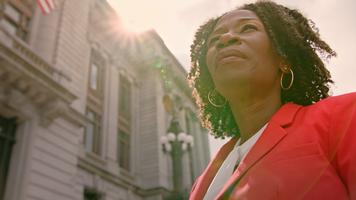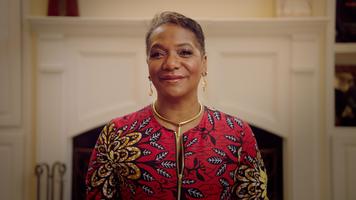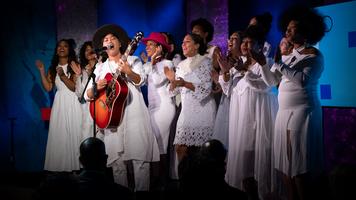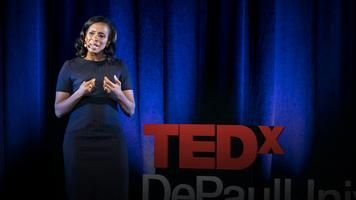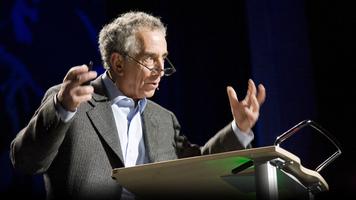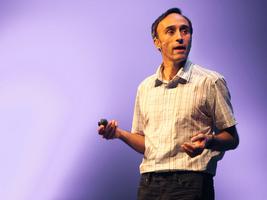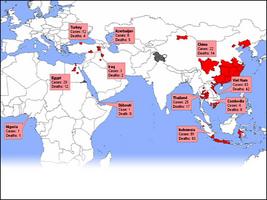American Family Insurance: Human-centered justice
American Family Insurance: One company at a time
Resistance Revival Chorus: "I Hope" / "DAWN"
Nyra Jordan: 4 steps to hiring fairly -- and supporting criminal justice reform
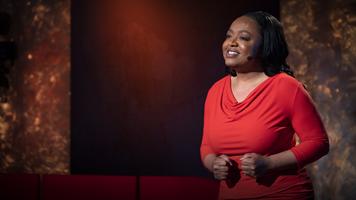
Many companies have made strides when it comes to prioritizing diversity, equity, and inclusion (DEI), but one group remains largely left out: people who have been involved in the criminal justice system. Social impact investor Nyra Jordan introduces us to "fair chance hiring" -- the practice of hiring people with criminal justice records -- and...
Nick Turner and Whitney Pennington Rodgers: How to fix two of the most broken systems in the US
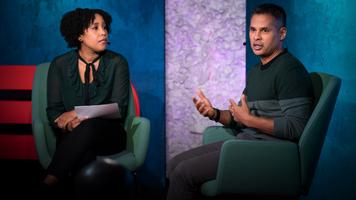
In an engaging, insightful conversation, criminal justice reformer Nick Turner breaks down the ways the US criminal legal system perpetuates centuries-old racial and economic inequality. He joins TED current affairs curator Whitney Pennington Rodgers to outline why the best way to actually deliver justice and safety is to shrink the system and r...
Brittany K. Barnett: The creativity, innovation and ingenuity languishing in US prisons
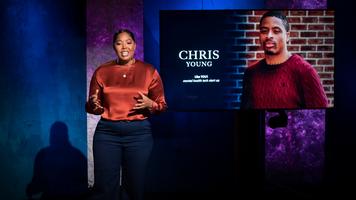
The freedom journey doesn't end when someone is released from prison. In many ways, it begins. Attorney and entrepreneur Brittany K. Barnett fights to free people from prison and champions restoring and nurturing the creative ingenuity of justice-impacted people. She shares stories of the innovation languishing in America's prisons -- and a visi...
Reuben Jonathan Miller: How radical hospitality can change the lives of the formerly incarcerated
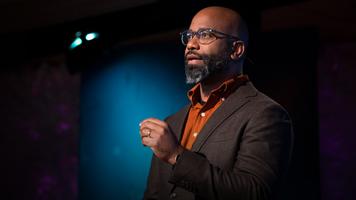
For the nearly 20 million Americans with a felony record, punishment doesn't end after their prison sentence. Sociologist Reuben Jonathan Miller sheds light on the aftershocks of mass incarceration through the stories of people who've lived it, left it and still have to grapple with punishing policies after their release. A challenge to rethink ...
Anand Giridharadas: A tale of two Americas. And the mini-mart where they collided
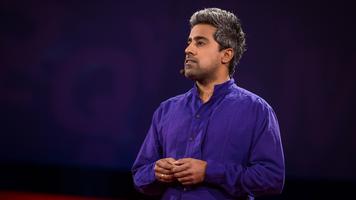
Ten days after 9/11, a shocking attack at a Texas mini-mart shattered the lives of two men: the victim and the attacker. In this stunning talk, Anand Giridharadas, author of "The True American," tells the story of what happened next. It's a parable about the two paths an American life can take, and a powerful call for reconciliation.
Marian Wright Edelman: Reflections from a lifetime fighting to end child poverty
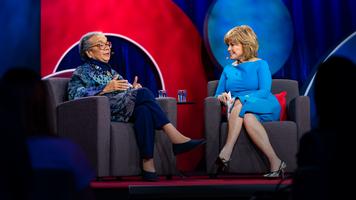
What does it take to build a national movement? In a captivating conversation with TEDWomen curator Pat Mitchell, Marian Wright Edelman reflects on her path to founding the Children's Defense Fund in 1973 -- from the early influence of growing up in the segregated American South to her activism with Dr. Martin Luther King Jr. -- and shares how g...
P.J. Parmar: How doctors can help low-income patients (and still make a profit)
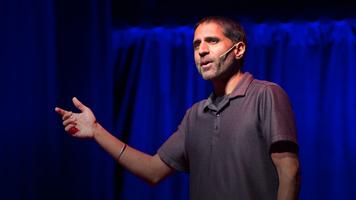
Modern American health care is defined by its high costs, high overhead and inaccessibility -- especially for low-income patients. What if we could redesign the system to serve the poor and still have doctors make money? In an eye-opening (and surprisingly funny) talk, physician P.J. Parmar shares the story of the clinic he founded in Colorado, ...
Jon Lowenstein: Family, hope and resilience on the migrant trail
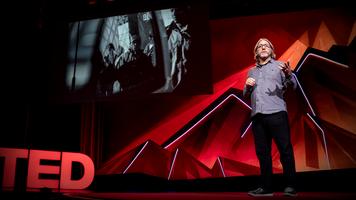
For the past 20 years, photographer and TED Fellow Jon Lowenstein has documented the migrant journey from Latin America to the United States, one of the largest transnational migrations in world history. Sharing photos from his decade-long project "Shadow Lives USA," Lowenstein takes us into the inner worlds of the families escaping poverty and ...
Hasan Kwame Jeffries: Why we must confront the painful parts of US history
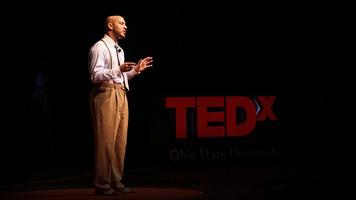
To move forward in the United States, we must look back and confront the difficult history that has shaped widespread injustice. Revisiting a significant yet overlooked piece of the past, Hasan Kwame Jeffries emphasizes the need to weave historical context, no matter how painful, into our understanding of modern society -- so we can disrupt the ...
Nita Farahany: When technology can read minds, how will we protect our privacy?
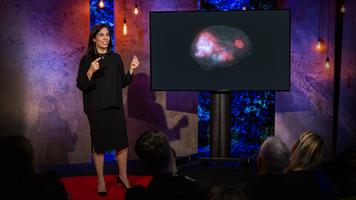
Tech that can decode your brain activity and reveal what you're thinking and feeling is on the horizon, says legal scholar and ethicist Nita Farahany. What will it mean for our already violated sense of privacy? In a cautionary talk, Farahany warns of a society where people are arrested for merely thinking about committing a crime (like in "Mino...
Anab Jain: Why we need to imagine different futures
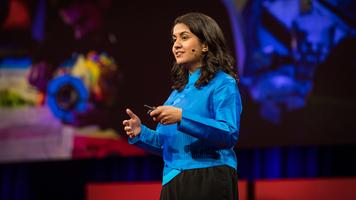
Anab Jain brings the future to life, creating experiences where people can touch, see and feel the potential of the world we're creating. Do we want a world where intelligent machines patrol our streets, for instance, or where our genetic heritage determines our health care? Jain's projects show why it's important to fight for the world we want....
Kandice Sumner: How America's public schools keep kids in poverty
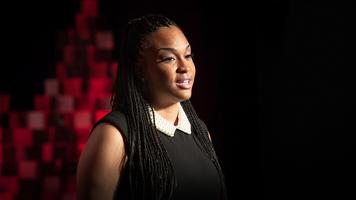
Why should a good education be exclusive to rich kids? Schools in low-income neighborhoods across the US, specifically in communities of color, lack resources that are standard at wealthier schools -- things like musical instruments, new books, healthy school lunches and soccer fields -- and this has a real impact on the potential of students. K...
Deja Foxx: Going viral taught me the internet is broken — but fixable
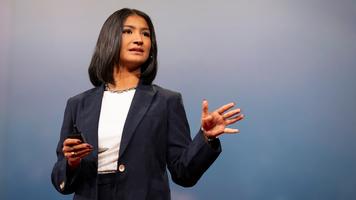
Digital strategist Deja Foxx went viral for speaking up at a town meeting — and then learned the harsh cost of being in social media’s crosshairs. She welcomes us to the “girl internet,” a growing ecosystem of women-led platforms that prioritize privacy, community and respect. "We’re building a new, better way of being online, no matter your gen...
Mainak Mazumdar: How bad data keeps us from good AI
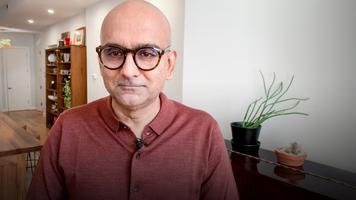
The future economy won't be built by people and factories, but by algorithms and artificial intelligence, says data scientist Mainak Mazumdar. But what happens when these algorithms get trained on biased data? Drawing on examples from Shanghai to New York City, Mazumdar shows how less-than-quality data leads to AI that makes wrong decisions and ...
Rebecca Onie: What Americans agree on when it comes to health
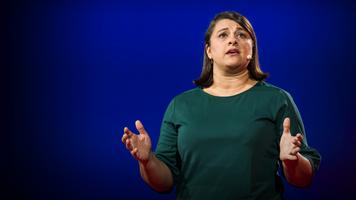
We may not be as deeply divided as we think -- at least when it comes to health, says Rebecca Onie. In a talk that cuts through the noise, Onie shares research that shows how, even across economic, political and racial divides, Americans agree on what they need to live good lives -- and asks both health care providers and patients to focus on wh...
Ralph Nader: What it takes to create social change against all odds
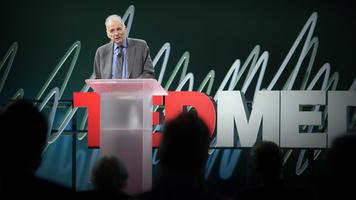
Over his decades-long career as a political activist, Ralph Nader has helped expose some of the greatest misdeeds of large corporations. You may be familiar with the real-world changes his work sparked: the Clean Air Act, automobile safety laws, regulation of the tobacco industry and more. Tracing the arc of his time advocating for change, Nader...
Sheetal DeCaria: The bias behind your undiagnosed chronic pain
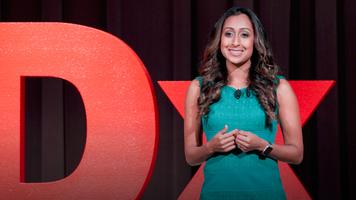
While doctors take an oath to do no harm, there's a good chance their unconscious biases can seep into how seriously they take your pain. Physician Sheetal DeCaria explains how perception impacts medical care and treatment -- and calls for health care professionals to check in with how they do their patient checkups.
Al Gore: How to make radical climate action the new normal
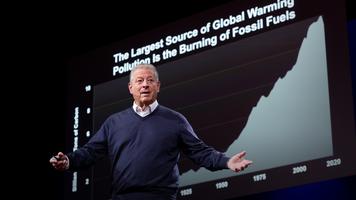
A net-zero future is possible, but first we need to flip a mental switch to truly understand that we can stop the climate crisis if we try, says Nobel laureate Al Gore. In this inspiring and essential talk, Gore shares examples of extreme climate events (think: fires, floods and atmospheric tsunamis), identifies the man-made systems holding us b...
David McWilliams: The power of unconventional thinking
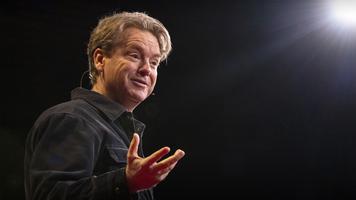
From World War I to the 2008 economic collapse and beyond, history shows that economists don't always see the future as clearly as they think they do, says economist David McWilliams. Using the words of W.B. Yeats, McWilliams makes the case for embracing unconventional thinkers – poets, artists and musicians – and offers a creative path towards ...
Amanda Bennett: We need a heroic narrative for death
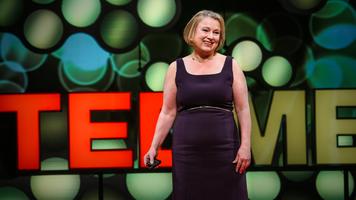
Amanda Bennett and her husband were passionate and full of life all throughout their lives together -- and up until the final days, too. Bennett gives a sweet yet powerful talk on why, for the loved ones of the dying, having hope for a happy ending shouldn't warrant a diagnosis of "denial." She calls for a more heroic narrative for death -- to m...
Howard Rheingold: The new power of collaboration
Kelly Richmond Pope: How whistle-blowers shape history
Barry Schwartz: Our loss of wisdom
Ken Kamler: Medical miracle on Everest

The second deadliest day in the history of Mount Everest climbs happened in 1996 -- and Ken Kamler was the only doctor on the mountain that day. He shares the incredible story of the climbers' battle to save lives in extreme conditions, and uses brain imaging technology to map the medical miracle of one man who survived roughly 36 hours buried i...
Roger Doiron: My subversive (garden) plot
Laurie Garrett: Lessons from the 1918 flu
Dr. Phillip Atiba Solomon, Rashad Robinson, Dr. Bernice King, Anthony D. Romero: The path to ending systemic racism in the US
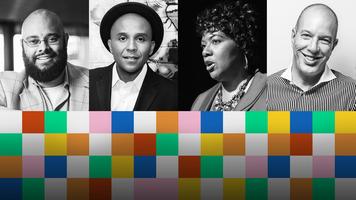
In a time of mourning and anger over the ongoing violence inflicted on Black communities by police in the US and the lack of accountability from national leadership, what is the path forward? Sharing urgent insights into this historic moment, Dr. Phillip Atiba Solomon, Rashad Robinson, Dr. Bernice King and Anthony D. Romero discuss dismantling t...
